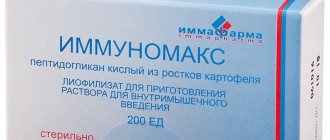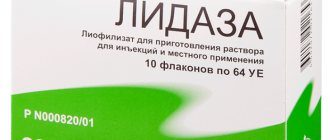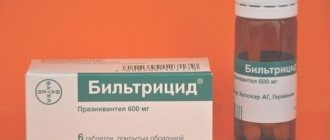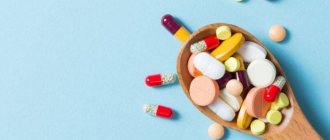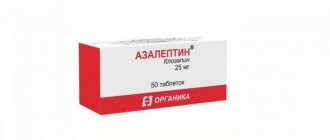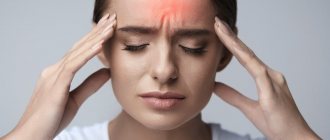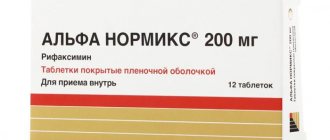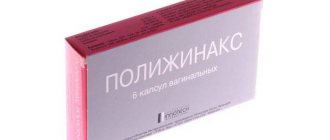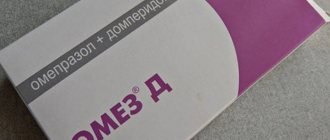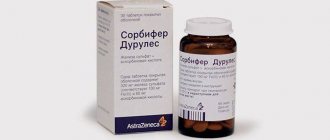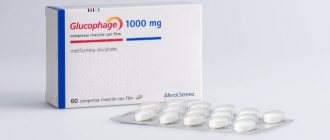Author of the article
Evgeniy Nikolaevich Konoplev
Reading time: 5 minutes
AA
Androcur is considered one of the most effective hormonal drugs with antiandrogenic properties. The drug is aimed at stabilizing the functioning of sex hormones in the male and female body, but it is also used for some other diseases. The drug is available in several forms. The instructions for use of Androcur indicate the dosage of the drug, which must be followed to avoid side effects.
Pharmacodynamics of the drug
The effect of the drug is due to the blocking of androgen receptors, inhibition of the action of androgens and a decrease in the synthesis of endogenous androgens. Reduces testosterone levels.
The drug protects the prostate gland from the negative effects of androgens in the gonads. Taking it leads to a decrease in unhealthy sexual desire. Used to treat inoperable and metastatic prostate cancer.
The drug has an antigonadotropic effect, therefore it is used to treat women, in particular, to reduce hair loss and excessive facial and body hair. The ability of the drug to inhibit ovulation is noted. When taking it, women experience a pronounced decrease in androgenization.
After oral administration, it is almost completely absorbed from the gastrointestinal tract. The degree of bioavailability of the drug is 88%. The ability to bind to blood proteins is 96%. The maximum concentration of cyproterone in the blood is reached after 3–4 hours. The half-life is 4 days. The components of the drug are excreted in bile.
Pharmacological action of Androcur
In accordance with the instructions for Androcur, the active component of the tablets and oil solution is cyproterone acetate.
Androcur is an antiandrogenic agent that inhibits the influence of androgens (male sex hormones), produced in small quantities by the female body. The drug also has antigonadotropic and gestagenic properties.
In men, during therapy with Androcur, there is a slight decrease in libido and potency, as well as a weakening of the function of the testes. These phenomena are reversible and disappear after discontinuation of the drug. The drug helps to reduce or completely eliminate the effect of androgens on target organs, including the prostate gland.
In women, while taking the drug, the functions of the sebaceous glands are dulled, both hair loss on the head and their excessive growth on the face and body are reduced. It has been noted that during Androcur therapy in women, ovarian function decreases.
Indications for use
Androcur is used for the following indications:
- Prostate cancer, inoperable or with developed metastases: to suppress testosterone levels as antiandrogen therapy, to reduce the severity of hyperandrogyny, to eliminate hot flashes.
- Increased libido caused by sexual dysfunction.
Androcur tablets with a dosage of 10 mg can be prescribed to women with moderate androgenization: facial and body hair, baldness, acne. In the absence of clinical improvements, it is prescribed in combination with Diane-35.
Directions for use and doses
Use in women.
For moderate androgenization phenomena, the drug is taken in the form of 10 mg tablets daily from the 1st to the 15th day of the menstrual cycle at a dose of 10 mg 1 time/day. Androcur in the form of 10 mg tablets is taken together with the drug Diane-35 to obtain the necessary contraceptive effect and eliminate intermenstrual bleeding.
To stabilize the cycle and for the purpose of reliable contraception, patients with androgenization phenomena additionally take Diane-35 from days 1 to 21 of the cycle, 1 tablet/day at the same hours. Both drugs should be started on day 1 of the cycle (first day of bleeding). After stopping taking Androcur (10th or 15th day of the cycle), during the subsequent days of the cycle, take the remaining tablets from the calendar package of Diane-35 (21 days in total). Then there is a break of 7 days, during which bleeding should occur. After a 7-day break, treatment is continued from the next calendar packs of Androcur and Diane-35, regardless of whether the bleeding has stopped or is still ongoing. If bleeding does not occur after finishing taking the tablets, treatment should be stopped and an examination should be carried out.
The duration of treatment is determined by the doctor and depends on the type, as well as the severity of the pathological phenomena of androgenization and the results of treatment. Acne and seborrhea are usually curable earlier than alopecia.
Androkur tablets are taken orally after meals with a small amount of liquid.
Contraindications
The manufacturer notes the following contraindications to the use of the drug:
- individual intolerance to cyproterone and other components of the drug;
- diseases caused by liver dysfunction;
- tumors in the liver;
- Rotor syndrome;
- Dubin-Johnson syndrome;
- cachexia;
- sickle cell anemia;
- thrombosis and thromboembolism;
- severe chronic depression;
- meningioma;
- diabetes mellitus in combination with angiopathy;
- age under 18 years.
For patients with inoperable prostate cancer who have a history of thromboembolism and thrombosis, diabetes mellitus in combination with angiopathy or sickle cell anemia, Androcur is allowed to be taken only after assessing the risk-benefit ratio. This ratio is assessed on an individual basis.
Patients with diabetes mellitus should be under close medical supervision while taking Androcur.
Androcur is prescribed with caution to patients with lactose intolerance, malabsorption syndrome, lactase, glucose and galactose deficiency.
Side effects of Androcur
Reviews of Androcur report that when using the drug, adverse reactions from the body systems may occur:
- Gastrointestinal tract: abdominal pain, nausea, vomiting, rarely – liver dysfunction;
- Endocrine system: in men – the ability to fertilize decreases (restores several months after the end of therapy), in women – tension in the mammary glands, weight changes, rarely – gynecomastia;
- Central nervous system: decreased activity, fatigue, anxiety, impaired ability to concentrate, apathy, rarely – depression.
According to reviews of Androcur, dry skin is also possible when using tablets.
Side effects
During treatment with the drug, side effects from various organs and systems may develop:
- Reproductive system: often decreased libido, impaired spermatogenesis, impotence, enlarged mammary glands.
- Hematopoietic system: anemia.
- Gastrointestinal organs: intra-abdominal bleeding.
- Respiratory organs: shortness of breath.
- Immune system: increased hypersensitivity.
- Liver and biliary tract: hepatitis, jaundice, liver failure.
- Skin: rash.
- CNS: depression, anxiety, depression.
- Vascular system: thromboembolism and thrombosis.
- Musculoskeletal system: osteoporosis.
- Other: increased fatigue, changes in body weight, hot flashes, sweating.
Compatibility with other drugs
When Androcur is combined with hypoglycemic drugs or insulin, dose adjustment of the latter is required.
Concomitant use of Ketoconazole, Clotrimazole Ritonavir and other inhibitors of the CYP 3A4 isoenzyme may lead to a decrease in the concentration of cyproterone in the blood.
Men suffering from chronic alcoholism and undergoing treatment for increased sexual desire with Androcur may experience a decrease in the effectiveness of therapy.
In combination with statins, the risk of sudden destruction of muscle tissue and progression of muscle atrophy increases.
Use of the drug
The tablets are intended for oral administration. They are taken after meals and washed down with liquid. If there is no therapeutic effect, the drug is discontinued. The maximum daily dose is 300 mg.
For antiandrogen therapy of inoperable prostate cancer, 2 tablets are taken 2–3 times a day. The dose is reduced or treatment is interrupted after improvement of the condition, as well as when remission is achieved.
To reduce the intensity of manifestations of hyperandrogenism, characteristic of the initial stage of treatment with gonadotropin-releasing hormone agonists, Androkur is prescribed 2 tablets twice a day. This monotherapy lasts 5–7 days. After 3–4 weeks, complex treatment is started at the same dosage in combination with a GnRH antagonist.
To eliminate hot flashes in patients with prostate cancer, as well as for those who have undergone orchiectomy, the following dosage regimen is prescribed: from 50 mg to 150 mg per day. If necessary, the dose is increased to 300 mg per day or 3 tablets 3 times a day.
To correct increased libido observed in sexual disorders, treatment begins with one 100 mg tablet. If necessary, it is allowed to increase the dosage for a short period of time to 2-3 tablets 2-3 times a day. After achieving the desired state, the dosage of the drug is reduced to the minimum effective. For maintenance therapy, ½ tablet twice a day is sufficient.
When discontinuing the drug, the dosage is reduced gradually: every week the dose is reduced by ½ and a whole tablet. To achieve a lasting therapeutic effect, Androcur is taken for a long time. It is advisable to simultaneously receive psychotherapy sessions.
There are no data regarding the need to change the dosage of the drug for elderly patients. The drug is not prescribed for the treatment of children under 18 years of age. This limitation is due to the lack of reliable information regarding the safety and effectiveness of the drug in patients of this age group.
There are no data on special dosing conditions for patients with renal impairment.
special instructions
Androkur reduces potency and libido, suppresses the function of the sex glands. Such changes are reversible. These functions are restored after discontinuation of the drug.
There is evidence that Androcur has a toxic effect on the liver, causing liver failure, jaundice or hepatitis. In patients with liver failure, use of the drug at a dosage of 100 mg or higher can lead to death. In most cases, deaths caused by taking Androcur occurred in men at the last stage of prostate cancer.
Toxicity is directly related to dosage and usually develops within a few months of starting treatment. Therefore, before you start taking this medication, you should regularly monitor your liver function during treatment for signs of hepatotoxicity. If they are detected, the medication should be discontinued. Except in cases where hepatotoxicity was caused by other reasons, for example, the appearance of metastases. In this case, treatment continues provided that the expected benefit outweighs the potential risk.
While taking the drug Androkur, in rare cases, the formation of benign and even more rarely malignant neoplasms in the liver, which can provoke intra-abdominal bleeding, was observed. If the patient has complaints of acute pain in the liver area, and an increase in the size of the organ is detected or there are signs of intra-abdominal bleeding, a diagnosis should be made taking into account a possible liver tumor.
There is also evidence that single and multiple meningiomas develop against the background of long-term use of the drug. If such a neoplasm is detected, treatment is stopped.
Evidence of the development of thromboembolic complications in patients during treatment with Androcur was revealed. A cause-and-effect relationship with the drug was not identified. It must be borne in mind that patients with myocardial infarction, deep vein thrombosis, pulmonary embolism, and cerebrovascular accident have an increased risk of developing thromboembolic complications.
Androcur can also cause the development of anemia. In this regard, during treatment it is recommended to systematically take a general blood test.
For patients with diabetes mellitus, dosage adjustments of insulin or oral hypoglycemic agents may be necessary. During the entire treatment they must be under the supervision of a doctor.
Taking high doses of Androcur may cause shortness of breath. In these cases, differential diagnosis should take into account the ability of progesterone and synthetic gestagens to have a stimulating effect on breathing. This symptom complex does not require special treatment.
During treatment, regular testing of the adrenal glands is recommended. Preclinical data from a study of the drug revealed the ability of cyproterone to suppress adrenal function. This is due to the corticoid-like effects of high doses of the drug.
Long-term use of antiandrogenic drugs can lead to the development of osteoporosis. This side effect is caused by a lack of androgens in the body.
Drinking alcohol while taking medication reduces the effectiveness of treatment for sexual disorders.
Due to the fact that the tablet contains lactose, patients with malabsorption syndrome, glucose-galactose deficiency, or lactose intolerance should take the drug with caution.
Release form and composition
The drug is produced in the form of tablets containing 10 mg, 50 mg or 100 mg of the active substance. An oil injection solution is also available
The active component of the drug is cyproterone acetate. It belongs to the group of antiandrogens. Cyproterone is a hormonal antitumor agent, as well as a hormone antagonist.
Tablets with three different dosages have different shapes:
- The medicine 10 mg and 50 mg is available in round form. Tablets are white or yellow. The drug is sold in blisters of 10 and 15 pieces or dark glass containers of 20 and 50 pieces. The product is produced in packs of 15, 20 or 50 tablets.
- Capsules 100 mg are white or yellowish. The blister contains 10 tablets. The medicine is sold in packs of 6 cell-shaped packages each.
According to the instructions for use, Androcur Depot in the form of an oil solution is administered intramuscularly at a dose of 100 mg/ml. Contents of substances in the medicine: cyproterone - 100 ml, castor oil - 353 mg, benzyl benzoate - 618 mg.
Androcur is available in Russian pharmacies with a doctor's prescription. The price of the medicine varies between 880-7000 rubles. The cost depends on the number of tablets in the package and the content of the active substance.
In terms of composition and pharmacological properties, Androcur has few analogues. It can be replaced with Andropharm or Cyproterone-Teva, which vary in cost and are produced by other companies.
Reviews from patients and doctors
The drug has proven to be effective and is characterized by satisfactory tolerability. Most patients rate it as a medicine with a high therapeutic effect. Women more often leave positive reviews about the drug Androkur. It is prescribed to them in complex therapy for the treatment of infertility and androgen syndrome. The drug is expensive - this is its main drawback. Women taking Androcur complained of nausea during treatment.
Men rarely take Androcur to treat increased desire. Therefore, reviews of such experiences are extremely rare. Patients with prostate tumors also rarely leave reviews about treatment with Androcur. However, this does not mean that the drug is ineffective.
